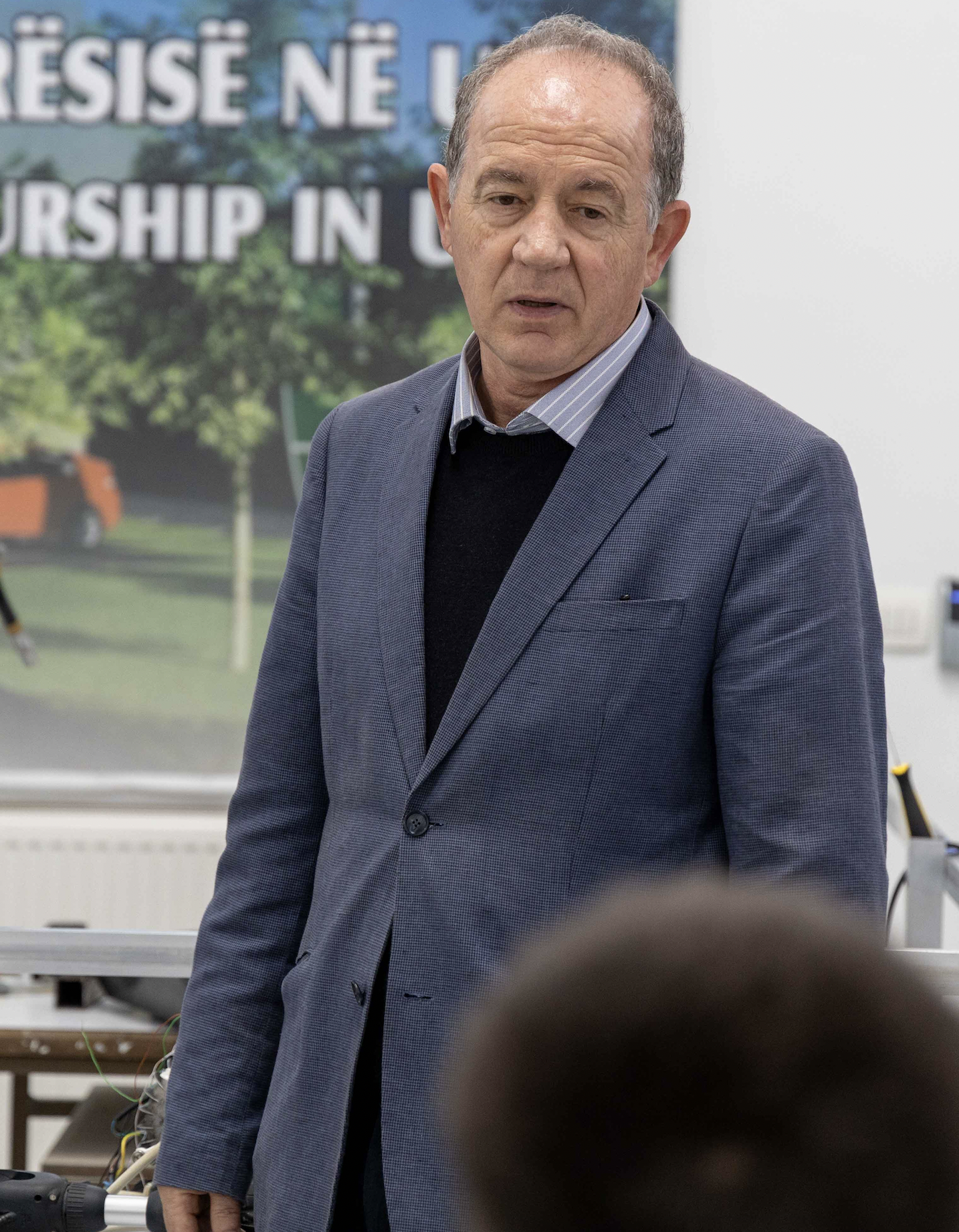Affordable medical ventilators for all
A professor and a group of his students at the University of Pristina have developed a low-cost medical ventilator prototype with EU support.
03/10/2022
Medical ventilators have made a significant contribution during the COVID-19 pandemic, helping seriously ill patients in emergency rooms. By helping to push air in and out of the lungs so the body can get the oxygen it needs, ventilators can be lifesaving machines for those with a condition that makes it hard or impossible to breathe properly. A lack of access to ventilators triggered students and professors from the faculty of mechanical engineering at the University of Pristina in Kosovo to look for alternatives.
“There were models of medical ventilators available in the market, but their prices were very high: up to €40,000. We wanted to develop a machine that would allow patients in low-income countries to receive treatment in emergency situations like the COVID-19 pandemic.”
Arbnor Pajaziti, Head of the Mechatronics department at the Faculty of Mechanical Engineering, University of PristinaFrom idea to implementation
Professor Arbnor Pajaziti is an expert in the field of robotics, and head of the Mechatronics department at the Faculty of Mechanical Engineering, University of Pristina. Professor Pajaziti and his team developed a prototype for a low-cost medical ventilator suitable for respiratory problems such as COVID-19, targeting lower-income countries. Apart from low cost, the product has also a patentable novelty: unlike most existing systems that force a breathing rhythm on a patient, this device allows the patient to trigger each breath sequence. “There were models of medical ventilators available in the market, but their prices were very high: up to €40,000. We wanted to develop a machine that would allow patients in low-income countries to receive treatment in emergency situations like the COVID-19 pandemic,” says Professor Pajaziti.
The work on the mechanical ventilator started at the very beginning of the pandemic. As he usually does at the beginning of the semester, the Professor had tasked his team of students to come up with ideas for development of prototypes. As there was a need for ventilators, almost unanimously the team decided that this was the device that they should work on urgently. Initially they conducted research and found out that the world is not really short of medical ventilators, but that their cost is very high and they are short of stock. The next stage was to work on the idea of a medical ventilator that could be produced at low cost and assembled quickly. In parallel, they worked to test it in a virtual environment. Professor Pajaziti explains that nowadays computer software is quite successful at testing mechanical engineering prototypes. “They come 95% close to a real prototype,” he says. Following successful software testing, his team had to move on to a physical prototype, but here they had a challenge – a lack of funds for purchasing parts and also of the expertise to patent the device.

“Without the support from EU4TECH POC, this project would be just another academic work on paper”
Arbnor Pajaziti, Head of the Mechatronics department at the Faculty of Mechanical Engineering, University of PristinaAt that time the EU-funded EU4TECH Proof of Concept (PoC) project had launched a call for proposals for funding the development of innovative ideas across the Western Balkans. As Professor Pajaziti was already familiar with the project, he decided to gather the documentation and apply for support. The attempt was successful and they were one of the first teams selected under the proof of concept scheme to qualify for prototyping support.
EU4TECH PoC has supported the project to acquire the bare minimum of hardware needed to prove the underlying concept, draft a professional English-language patent application based on a comprehensive prior art search, and investigate the regulatory landscape for the device. “Without the support from EU4TECH PoC, this project would be just another academic work on paper,” says Professor Pajaziti.
With the Proof of Concept scheme coming to an end, the mechanical ventilator project needs to find further support to continue. This could take the form of a grant (around €50,000) to purchase the hardware and develop associated software needed to take this from Technology Readiness Level (TRL) 3 to TRL4. Certification would then be needed before it could be tested in the University of Pristina Clinic. In the longer term, the project will need to identify an industrial partner to turn the prototype into a fully-certified product.
Professor Pajaziti explains that his students are eager to contribute further to this and other similar projects. “With the proper funding and support, we can contribute significantly to our community and humanity,” he says.
About the project
EU4TECH PoC Western Balkans was a two-year multi-country Instrument for Pre-Accession (IPA) project funded by the EU through the Western Balkans Enterprise and Development Innovation Facility (WBEDIF). The project covered the six economies of the Western Balkans region. Projects supported originated from public research organisations and start-ups/ small and medium-sized enterprises.
WBEDIF is one of the private sector instruments supported by the Western Balkans Investment Framework – a joint initiative of the EU, financial organisations, bilateral donors and beneficiaries, aimed at enhancing harmonisation and cooperation in investments for the socio-economic development of the region and contributing to the European perspective of the Western Balkans.
The WBIF is the main vehicle for implementation of the EU’s ambitious Economic and Investment Plan for the Western Balkans. Enhancing the competitiveness of the private sector, and stepping up support to research and innovation is at the heart of the Plan.
Find out more
Photo credits: Arbër Gjoni